

Driving Sustainable Change


CEO Message
As we reflect on 2024, I am proud of Ecobat’s progress in advancing our sustainability goals.
Our commitment to responsible environmental stewardship and sustainable business practices remains central to creating long-term value for our stakeholders.
This year, we aligned our strategy with evolving international standards and new regulatory requirements. We advanced our Scope 3 greenhouse gas emissions methodology, refined Scope 2 calculations, and completed a Double Materiality Assessment to guide our financial and sustainability disclosures. We fostered continued collaboration with our supply chain partners and customers, highlighting our dedication to transparency and accountability.
We also achieved our highest Adjusted EBITDA since 2021, surpassing budget targets. Strategic initiatives have optimized operations, strengthened commercial execution, and enhanced our bottom line. These successes reflect our resilience and forward-thinking approach, with improvements in production, occupational health, and safety, thanks to our employees’ dedication.
Looking ahead to 2025, Ecobat’s objectives include optimizing North American operations, right-sizing SG&A expenses, and maintaining a strategic focus.
Together, we will continue to innovate, adapt, and lead in sustainable practices. Thank you to our customers and suppliers for your support and dedication to our shared vision.
Tom Slabe President and Chief Executive Officer

Ecobat’s International Sustainability Goals
Ecobat’s sustainability journey took a significant step forward in 2022 with the launch of our formal program, rooted in international standards and designed to drive long-term results. Since then, we have implemented targeted goals that reflect our leadership in battery recycling, including the gold-standard lead-acid circularity model, which recovers and returns 99% of materials into the supply chain. This model, in addition to our expanding efforts in lithium-ion recycling, continues to drive our progress as we partner with suppliers and customers to build a more sustainable future.
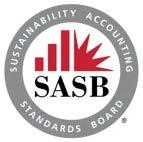

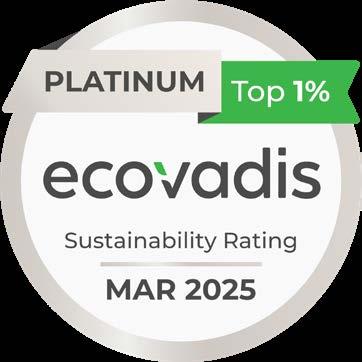

Sustainability Accounting Standards Board (SASB) and Global Reporting Initiative (GRI) standards and framework. Since 2022, the company has taken into account the SASB and GRI frameworks in reporting.
EcoVadis Platinum Medal Sustainability Rating. Earned from our results in 2024, this award places Ecobat in the top 1% of all organizations assessed by EcoVadis. EcoVadis is an international organization that assesses environment, labor and human rights, ethics, and sustainable procurement performance.
United Nations Global Compact (UNGC) participant. A participant since 2023, we focus on embedding the Ten Principles of the UNGC into Ecobat strategies.
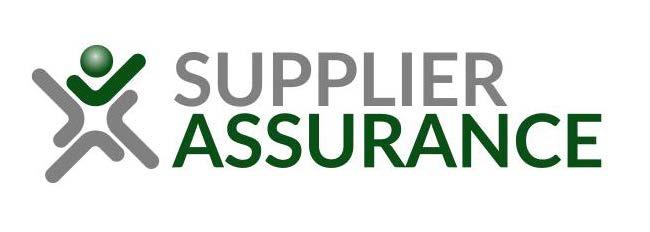
Suppliers Assurance Questionnaire (SAQ). As a multi-year participant, SAQ is a leading global standard for assessing sustainability across automotive supply chains. Utilized by Original Equipment Manufacturers (OEMs) and suppliers worldwide, it aligns with the Global Automotive Sustainability Guiding Principles to evaluate key areas including human rights, environmental sustainability, and responsible sourcing.
Ecobat remains committed to aligning our products with our core valuesrespecting human and labor rights, safeguarding the environment, and a firm stance against corruption in all its forms.
Our sustainability approach extends beyond internal practices to encompass our supply chain and customer relationships. Through a structured assessment and review process, we seek to ensure that our partners align with Ecobat’s values and standards.
Since 2022, and expanding in 2023 and beyond, we have strengthened our materiality tracking and reporting systems, backed by streamlined Key Performance Indicator (KPI) monitoring. These improvements have enhanced the accuracy and reliability of our sustainability data, giving us greater confidence in our reporting.
Regulation and Compliance
Climate-Related Governance and Sustainability Performance
As global sustainability regulations continue to evolve, Ecobat remains committed to staying informed and adaptable. We actively participate in industry forums, trade organizations, and peer networks to ensure our business remains compliant and responsive to regulatory changes.
• California SB 219 amending: SB 253: Climate Corporate Data Accountability Act and SB 261: The Climate-Related Financial Risk Act. In California, Senate Bill SB 253 requires large businesses to publicly disclose their Scope 1 and 2 greenhouse gas emissions, along with indirect emissions within their value chain. Additionally, Senate Bill SB 261 mandates that large businesses disclose the financial risks they face due to climate change, and outline their strategies for mitigating these risks. Starting in 2026, Ecobat will disclose its verified Scope 1 and 2 emissions, and from 2025 onward, it will report on emissions across its upstream and downstream value chain.
• Regulation (EU) 2023/1542 concerning Batteries and Waste Batteries. Lead and battery entities are subject to additional sustainability requirements. In February 2023, the EU Battery Regulation, 2023 came into effect, which set forth new sustainability requirements for economic operators and recyclers of batteries. The Regulation is committed to enhancing the circular economy by making batteries sustainable throughout their entire life cycle, from raw materials sourcing to collection, reuse, and recycling. This is achieved by setting targets for material recovery, mandatory recycled content levels, and ensuring batteries are designed for reuse and recycling.
To ensure compliance with the EU Battery Regulation, 2023, Ecobat reviewed its processes and activities against the provisions of the Regulation and set out specific compliance actions to align its operations with applicable regulatory requirements.
• United Kingdom (UK) Companies (Strategic Report) (Climate-related Financial Disclosure) Regulations 2022. The UK Task Force on Climaterelated Financial Disclosures (TCFD) regulation requires climate-related financial disclosure inclusion in strategic reporting. Authorized in April 2022, climate change-specific transparency, accountability, and proactive measure requirements are mandatory for Ecobat applicable entities. In 2024, Ecobat prepared and submitted a report aligned with TCFD recommendations covering governance, strategy, risk management, and metrics.
About This Report
The sustainability report covers 2024 data and showcases Ecobat’s efforts to integrate sustainability throughout our company, our processes, and the products we produce. It has been prepared in consideration of the Sustainability Accounting Standards Board (SASB) and the Global Reporting Initiative (GRI). Furthermore, Ecobat’s sustainability management and reporting are guided by our commitment to the Sustainable Development Goals (SDG).
We invite stakeholders to learn more about our approach to sustainability by visiting our website at www.ecobat.com . Should you require further information, please contact info@ecobat.com

Business
World Challenges and Market Trends
Lead remains a critical material in modern industry, supporting sectors including transportation, healthcare, telecommunications, agriculture, and consumer goods. With a recyclability rate exceeding 99%, lead minimizes reliance on primary mining while maintaining consistent performance in secondary applications. Its strong recycling infrastructure makes lead one of the most sustainable metals , supporting the circular economy.
The recycling of lead-acid batteries yields valuable by-products including tin and antimony, both of which are vital to strategic industries. Tin is an essential component in renewable energy technologies, particularly in solar panel soldering and advanced electronic applications. Antimony enhances the durability of lead alloys; strengthens materials used in fire-resistant coatings, semiconductors, and high-performance batteries; and plays a key role in ammunition and defense technologies. The recovery of these critical materials through lead-acid battery recycling reinforces the sustainability of multiple industrial supply chains.
Lead’s Role in the Evolving Mobility Landscape
Lithium-ion technology currently dominates electric vehicle (EV) powertrains and is rapidly expanding into other sectors, including industrial applications (e.g., forklifts) and recreational uses (e.g., golf carts). This broader adoption enhances recycling opportunities by diversifying battery streams. Looking ahead, we are entering a phase of coexistence between battery chemistries, with lead-acid batteries continuing to play an indispensable role in transportation systems.
In conventional vehicles, lead-acid batteries remain essential for both starting and auxiliary functions. As cars increasingly incorporate electronic systems, including advanced driver assistance and infotainment, some models now require more than one lead-acid battery to meet the higher power demand. Moreover, electric bikes, scooters, and micro-mobility solutions continue to rely on lead batteries due to their affordability, reliability, and resilience in extreme conditions. In EVs, lead-acid batteries are essential for 12V auxiliary functions, supporting safety systems, lighting, power steering, and backup power in case of a main battery failure.
The global EV market in 2024 has seen slower-than-expected growth due to reduced government subsidies, economic uncertainty, and delayed
consumer adoption amid rapid technological advancements. However, hybrid vehicles (HEVs and PHEVs) have experienced sustained demand, offering a practical bridge between traditional combustion engines and full electrification. Hybrid vehicles rely on lead-acid batteries, ensuring continued demand for lead within the automotive sector. The stability of this market segment highlights lead’s resilience despite shifting industry trends.
Lead’s Expanding Role in Energy and Infrastructure
As the world accelerates toward a low-carbon economy, lead is proving indispensable in multiple applications beyond automotive uses, playing a crucial role in:
• Nuclear energy infrastructure. Lead is widely used for radiation shielding in nuclear reactors and medical imaging.
• Power grid protection. Lead-coated cables are essential for underground transmission lines, ensuring durability in extreme environments.
• Renewable energy storage. Lead-acid batteries remain a cost-effective, scalable, and highly recyclable solution for stabilizing intermittent renewable energy sources, particularly in off-grid and backup power applications.
A Sustainable Future for Lead
Despite increasing competition, lead remains a strategic resource due to its circularity, reliability, and versatility. Ongoing advancements in lead battery technology, including enhanced cycle life and energy density improvements, are reinforcing its role in energy storage, industrial applications, and mobility solutions.
As industries pursue more sustainable and secure supply chains, lead’s unique combination of high recyclability, performance stability, and critical by-product recovery positions it as an essential material for the future. With a well-established recycling infrastructure and continued innovations, lead is set to remain a cornerstone of industrial progress for decades to come.

Ecobat Circularity
As population increase drives demand for raw materials, the supply of these finite resources becomes increasingly strained. This highlights the urgent need to shift from the traditional, linear economic model—take, make, consume, dispose—to a more sustainable, circular economy.
Ecobat aims to demonstrate a circular economy model, where production and consumption are redefined to minimize waste and maximize resource efficiency. Through our closed-loop recycling approach, we extend the life cycle of our products by recovering and reusing materials from end-of-life products, keeping valuable resources within the economy. This process not only reduces waste and greenhouse gas emissions, but also creates additional value as materials are continuously repurposed. Lead, with a 99% recyclability rate, serves as a prime example of the success of the circularity principle, showcasing how materials can be repeatedly reused in a sustainable cycle.
With over 80% of our business focused on recycling and resource recovery, we play a crucial role in supplying the materials needed for the global energy transition and the development of low-emission technologies. Our Circularity Model, as illustrated, highlights our commitment to a sustainable, closed-loop system that supports a circular economy.
Circularity provides a unique value proposition globally, as legislative requirements emerge with intensifying resource pressures. In the European Union, the EU Clean Industrial Deal proposes measures to boost production by focusing on energy-intensive industries needing to switch to clean energy by tackling high costs, global competition, and complex regulation.
Similarly, US initiatives aim to advance clean energy and improve manufacturing efficiency support for recycling critical battery components. While the regulatory approach in the US differs from the EU’s more prescriptive measures, these initiatives underscore a growing commitment to circular economy principles and enhanced resource efficiency across key industrial sectors.
Ecobat plays an active role in promoting the circular economy by contributing to its objectives to reduce waste and extend the life of materials through recycling, reuse, and sustainable production, thereby maximizing the EU’s limited resources and reducing overdependence on third-country suppliers for raw materials to ensure a competitive and resilient market.
Ecobat’s Circularity Model
END USER REMOVES END-OF-LIFE BATTERY
INSTALL NEW BATTERY
WE COLLECT AND TRANSPORT END-OF-LIFE BATTERIES
WE PURCHASE AND DISTRIBUTE BATTERIES TO END USERS FROM MANUFACTURERS
WE RECYCLE LEAD, PLASTIC, AND ACID
WE SMELT AND REFINE LEAD
WE PACKAGE AND SHIP LEAD TO BATTERY MANUFACTURERS
Company Overview: Locations and Services
Local Presence, International Impact
With over 90 years of experience, Ecobat’s extensive history in the leadacid battery recycling market provides a significant marketplace advantage. Our decades of technical acumen, practical experience, and operational excellence support our sustainable processes and practices for the safe, effective handling of lead. The scope and breadth of our operations allows us to capitalize on transferrable advantages, including vast logistical knowledge, strategic geographic positioning, and industry contacts. Managing the responsible production and recycling of lead is essential to making all this possible.
Our goal is to provide our customers with global, best-in-class recycling, logistics, and distribution services. We recognize the importance of meeting the market’s needs to transition to low-carbon alternatives, and Ecobat embarked on lithium-ion battery recycling to provide our customers with the same best-in-class services for advanced battery chemistries, complementing our core business expertise in lead and lead-acid battery recycling.
Ecobat has operations throughout Europe and the United States, creating a large network that powers industries worldwide. Our operations offer seamless service for battery collection and recycling, including:
11 SMELTING FACILITIES
During 2024, Ecobat:

Collected approximately 26 million automotive batteries for recycling.

Processed 630 thousand metric tonnes of waste batteries.

Produced finished lead goods to supply lead for approximately 40 million automotive batteries.
3 LITHIUM-FOCUSED FACILITIES COLLECTION TRUCK FLEET
65,000 BATTERY COLLECTION POINTS
Ecobat Resources
Ecobat Resources provides responsible recycling and production of resources essential to modern life. Backed by an international network of smelters, we are the world’s largest producer of lead and lead alloys used in energy storage solutions and a range of other industrial and commercial applications. Alongside our lead production and recycling operations, Ecobat Resources also provides recycled polypropylene solutions, offering Seculene ®, a UL 94 V0 certified compound enhanced with non-halogenated, flame-retardant properties.
Ecobat Logistics
Ecobat Logistics executes the collection of end-of-life batteries in support of our commitment to supporting the closed-loop management and recycling of energy storage solutions. We provide collection services for the markets in which we operate, offering seamless service for battery collection and recycling in Europe. In addition to lead batteries, we also manage the collection and handling of other battery chemistries, including but not limited to lithium batteries.
Ecobat Battery
Ecobat Battery manages the procurement and sale of energy storage solutions. We supply batteries for a wide range of uses, including automotive, commercial vehicle, marine and leisure, motorcycle, and industrial applications. We are the European license holder and distributor of Lucas and Rolls batteries and a key distributor for Exide, Varta, US Battery, Trojan, Optima, Sonnenschein, Tab, and more. In addition to our vast portfolio of products, we offer additional services to our industrial customers, including battery maintenance contracts, installation, and repair.
Ecobat Solutions
Ecobat Solutions leverages our extensive technical experience and international team to bring innovative products and solutions to market in the advanced battery chemistry space. We also work to drive advancement within our company and industry in support of our commitment to sustainability and environmental stewardship, in the development of technologies and processes for recycling and resource recovery for lithium-ion and other battery chemistries. We have capabilities for collection, dismantling, diagnostics, and crushing/sorting to derive black mass for advanced battery chemistries. We also support research and partner with universities, trade organizations, and government entities to develop safe, efficient energy storage solutions.


Strategy
Mission, Vision, and Values
Every day, billions of people benefit from the technologies that use and rely on lead. It provides efficient energy storage solutions in transportation, medicine, telecommunications, agriculture, and clean energy. Lead is a crucial resource that connects us to modern life today and tomorrow. Our commitment to the well-being of our team members, partners, communities, and the planet guides us in everything we do, and we continually look for new ways to enhance our efforts.
Our Mission
To lead in the responsible collection, recycling, production, and distribution of resources essential to modern life.
Our Vision
As the market leader, we drive advancement within our industry and work to develop innovative and sustainable products that help our customers succeed, protect our environment, and improve our communities while meeting the ever-growing need for more efficient, reliable energy storage solutions.

Our Values
We’re Proud
We find a deep sense of pleasure and satisfaction in the work achievements and qualities we share.
We’re Rigorous
We gather all the facts before we engage. If you want to get involved with us, we make sure you’ve done your homework.
We’re Caring
We prioritize the wellbeing of our people, each other, and the planet, and we are intentional about making a positive impact.
We’re Engaged
We are consistent, precise, and purposeful in everything we do.
We’re Operationally Excellent
We embrace principles and tools that produce efficient, superior outcomes.
We’re Collaborative
We produce effective and efficient outcomes because we work together as a team.
2024 Sustainability Strategy Status
Material Sustainability Topics Key Achievements
• In 2024, Ecobat continued reporting Scope 1 & 2 Inventory data and improved data quality by using supplier-specific emissions factors for electricity.
• Ecobat developed a Scope 3 methodology, assessed its readiness, and where required by law, will employ this methodology.
Energy and Greenhouse
Gas Emissions
Environmental Protection
• A feasibility study was conducted to explore GHG targets, considering EU regulations (CSRD, CSDDD). Where deemed necessary, Ecobat will assess these regulations to ensure target-setting alignment.
• Ecobat collects data from its sites to compare their environmental impact and share best practices, with the aim of improving environmental performance.
• Ecobat is also exploring targets for lead and heavy metals releases to enhance environmental protection.
Waste Management
Responsible Materials Sourcing
In 2024, Ecobat further improved waste data collection to include waste intensity and recycling efficiency.
Waste generated | 197,795 tons
Hazardous waste | 119,892 tons
Nonhazardous waste | 77,903 tons
Total waste recovered (recycled-reused) | 150,513 tons
• Our Third-Party Code of Conduct was reviewed against international standards, including the OECD Guidelines for Multinational Enterprises on Responsible Business Conduct and the UN Guiding Principles on Business and Human Rights.
• Ecobat aims to have 100% of Ecobat spend covered by supplier responses to the Third-Party Code of Conduct questionnaire.
Workforce Health and Safety
• Ecobat continues to report internal Health, Safety, and Environmental (HSE) metrics of Total Case Incident Rate (TCIR) and blood lead.
• Ecobat continues to operate its updated Incident Investigation Program.
• Ecobat continues to develop its biological monitoring programs for Solutions, aligned with leading research and local regulations.
• Ecobat has delayed formal target-setting for Solutions until further consensus is reached amongst industry leaders about best practices for biological monitoring. Existing options for testing can be sensitive to certain variables that can reduce the reliability of results; alignment of approach across geographies is ongoing.
Stakeholder Engagement and Materiality
During 2022, we conducted a comprehensive enterprise-level Environmental, Social, and Governance materiality assessment based on extensive research, benchmarking, and engagement with key stakeholder groups. Using this process, we refined Ecobat’s ESG strategy to support stakeholder expectations. The goal of this analysis was to identify key areas of materiality for the organization and opportunities for improvement. We aim to continuously review our assessment to ensure business risks are accurately evaluated.
The 2022 assessment applies to 2024 operations, and our reporting is subsequently aligned with the results of identified, refined, and assessed potential issues that could affect our business and stakeholders. The enterprise-level Environmental, Social, and Governance materiality assessment is intended to be conducted every three years to maintain alignment with contemporary business operations and practices. We followed a four-step process to ensure the validity of our assessment.
We identified the sustainability issues applicable to Ecobat based on current stakeholder engagement, research, and benchmarking (GRI standards, SASB, Morgan Stanley Capital International [MSCI] materiality maps, and requirements).
We used surveys and interviews with 45 internal and external stakeholders to gather stakeholder feedback and validate their expectations.
We prioritized the list of issues and ranked them to create a preliminary materiality map.
The Materiality Map formed the basis of the Materiality Matrix, allowing us to establish a strategy consistent with supporting results.
Materiality Matrix
Climate Change Risk Assessments
A Group-level climate change risk assessment (CCRA) was conducted in 2024 for Ecobat, following the Task Force for Climate-related Financial Disclosures (TCFD) recommendations. The material risks identified through the CCRA have been integrated into Enterprise Risk Management (ERM) in support of the list of risks managed by the Group. The assessment also identified significant opportunities for Ecobat to further its contribution to a low carbon economy through its battery recycling efforts. These included the potential for reduced operating costs through technological improvements in energy-intensive inputs, increased demand for secondary materials leading to access to new customers, improved access to new suppliers from more widespread and regulated end-of-life battery usage, and capitalizing on new battery applications, improving sales. These opportunities will be shared with the Executive Leadership Team to inform the strategy. The Health, Safety, and Environmental and Sustainability (HSES) Committee is the stated vehicle for communication to directors on climate-related risks and opportunities. The results of the climate change risk assessment will be leveraged to satisfy the climate-related financial disclosures in relevant jurisdictions, as obligations arise.

Policies and Procedures
Our strategy is effectively implemented and guided by our leadership, who oversee a comprehensive set of policies, procedures, principles, and guiding documents on all fronts of our sustainability efforts.
Environment Social Governance Compliance
• Health, Safety, Environmental & Sustainability (HSES) Policy
• Incident Data Management & Investigation Program
• Sustainable Procurement Policy
• Third-Party Code of Conduct
• Global Code of Conduct
• Working Conditions Policy
• Pension and Post-Retirement Benefits Policy
• Leave Policy (USA Only)
• Anti-Bribery and Corruption Guide for Third-Parties
• Parental Leave – Minimum Global Standards
• New Employee Referral Program
• US Employee Handbook
• Avoidable Loss Reporting
• Travel and Expense Policy
• Cost Accounting
• Trade and Other Payables
• Cost of Sales
• Lease Accounting
• Bank Accounts
• Foreign Currency
• Intergroup Sales & Transfers
• Intercompany Loans
• Inventory
• Property, Plant & Equipment
• Revenue Recognition
• Derivatives Use & Hedging
• Financial Reporting
• Income Tax Filing
• Indirect Tax Filing
• Intercompany Transfer Pricing
• Global Code of Conduct
• Delegation of Authority Matrix
• Ethics & Confidential Helpline Guidelines
• Whistleblowing Procedure
• Anti-Bribery and Corruption Procedures & Guidance
• Antitrust & Competition Compliance Procedures and Guidance
• Ecobat Conflict Minerals Policy Statement
• Ecobat Modern Slavery & Human Rights Statement
• Prohibited Parties Compliance Guidelines
• Group Enterprise Risk Management Policy
• Dawn Raid Procedures Marketing:
• Brand Standards
• Communication Toolkit IT:
• Change Management Policy
• Acceptable Usage and Mobile Device Management Policy
• IT Governance Policy
• Cybersecurity Policy
• Data Privacy Policy
• IT Business Continuity & Incident Response Policy
Frameworks, Standards, and Certifications
Ecobat is committed to the highest international standards and holds nearly 60 International Standards Organization (ISO) certifications, including ISO 9001 (Quality), ISO 14001 (Environmental Management), ISO 45001 (Occupational Health and Safety), ISO 50001 (Energy Management), and ISO 17025 (Testing and Calibration Management). We leverage these certifications to set even higher targets for improvement.

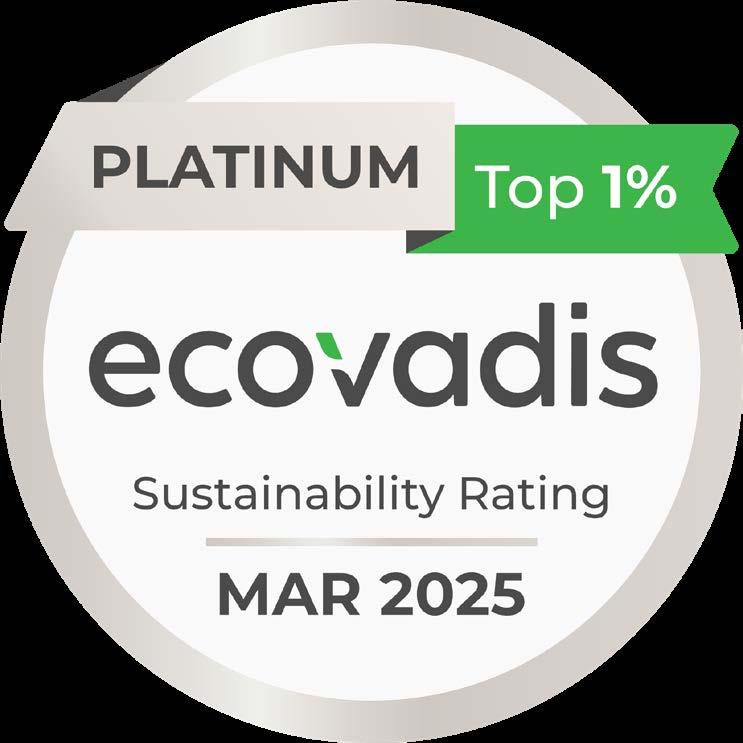
EcoVadis
With more than 125,000 companies rated across 160 countries, EcoVadis is a globally recognized platform providing reliable industry sustainability ratings. EcoVadis provides benchmarks for ethical and environmental standards across many industries in four key categories: environment, labor and human rights, ethics, and sustainable procurement performance.
In 2024, Ecobat improved its already strong 2023 Gold badge rating status to Platinum, placing it in the top 1% of all firms evaluated by EcoVadis. The score was improved in all four areas, with the largest in the key Environment area, scoring 87 points out of 100. This achievement indicates that Ecobat is striving to continuously improve its performance in key sustainability areas. It demonstrates commitment to the highest standards of business conduct in matters of environmental protection, ethics, human rights, and sustainable sourcing.

The United Nations Global Compact (UNGC) and the Sustainable Development Goals (SDGs)
The UNGC and SDGs form the basis of our sustainability framework and help us strategically address pressing global challenges. Our strategy embraces the 10 UNGC Principles, as well as 9 SDGs. We have aligned our management system and sustainability efforts to consider internationally recognized sustainability best practices, such as the Global Reporting Initiative and SASB Standards. Moreover, we consistently work towards contributing to the SDGs in all our operations, and strive to embody the UNGC 10 principles.
Since joining the UNGC in 2024, Ecobat stands alongside more than 20,000 companies and 3,800 non-business signatories based in over 160 countries committed to accelerating responsible business and sustainability efforts. We affirm our commitment to respecting human and labor rights, safeguarding the environment, and working against corruption in all its forms by embedding the Ten Principles of the United Nations Global Compact (UNGC) into our strategies and operations.
Our Sustainability Aims
In developing our people and planet aims, we used the UN sustainable development goals to inform our thinking. Although our business activity touches the majority of the SDGs, we are focusing our efforts on those that align with our aims in order to sustain development and for people over the next decade.
We strive to:
Enhance wellbeing
Enhance the health and wellbeing of our employees, contractors, and local communities.



Sustainable purchasing
Develop a more sustainable supply chain.
Greater equity
Foster a more welcoming and supportive environment for all employees and customers.


Promote circularity
Unlock enterprise value through circularity.
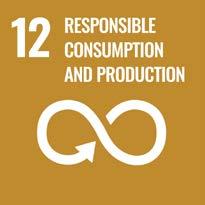
Advocating
More actively advocate for policies that support circularity, including material recycling rates.

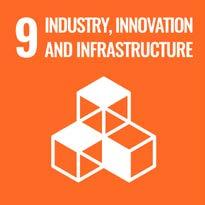





Aligning associations
Set new expectations for our relationships with trade associations around the globe.


Transparency leader
Be recognized as an industry leader for the transparency of our reporting.

Just transition
Support a just energy transition that advances human rights, environmental stewardship, and education.



Enable clean energy
Provide an essential material to aid in the low-carbon transition through battery applications.


Incentivizing employees
Incentivize our global workforce to deliver on our aims and mobilize them to become advocates for circularity.



Governance
Ecobat’s governance framework ensures efficient and effective use of resources and aligns closely with stakeholder interests. The framework requires custodial accountability and balances our economic, social, and environmental goals. While our governance structures provide stability, our responsibilities adapt to the changing needs, including the incorporation of climate-related risks and opportunities, thereby enhancing our ability to contribute to a low carbon economy and promote community equity and sustainability.
Board Structure
Ecobat, LLC is a limited liability company whose corporate governance is subject to the requirements, rights, and obligations set out in its formation document, including its governing LLC agreement. Ecobat’s Board is comprised of 12 individuals appointed by unitholders. Board members have a varied and expansive depth of experience in financial sectors, with members adding expertise in global industries, manufacturing, and service.
The Board charter details the responsibilities of the Board and delegates authority to the Chief Executive Officer. The charter also gives the Board the authority to add management positions to further reinforce its commitment to good governance. The charter includes Legal and Health, Safety, and Environment (HSE) positions.
The Board retains decision-making capacity and authority for the annual budget, and oversees significant and exceptional decisions. The Board has four committees to provide structured oversight and governance, including the Audit Committee, the Capital Expenditures Committee, the Health, Safety, Environmental and Sustainability Committee, and the Governance and Compensation Committee.
Each committee has its own charter, and these are the Controlling documents. The charter requires four board meetings per year at minimum, and additional meetings as required to ensure Board alignment with management.
Risk Committee
The Ecobat Enterprise Risk Committee (ERC), comprised of Ecobat’s Executive Leadership team and the Director of Audit and Risk Services (ARS), is a management-level risk committee accountable for enabling leadership to understand, evaluate, and mitigate the risk that may negatively impact enterprise value and prevent the achievement of Company goals and objectives.
The annual Enterprise Risk Assessment (ERA) evaluates Ecobat’s broader portfolio of operational, commercial, strategic, financial, technological, cybersecurity, legal regulatory, climate-related, and human capital risks. It creates a priority list of the most critical enterprise-level risks. The ARS team further formulates their annual audit project plan based on the outputs of the ERA to reduce risks to an acceptable level. In addition, the ERC meets quarterly to review risk owners’ response plans to Ecobat’s top risks and discuss any emerging enterprise risks, shifts in risk priorities, and highpriority audit recommendations.
Group Enterprise Risk Management Policy
Ecobat monitors business ethics through the Annual Enterprise Risk Assessment, quarterly enterprise risk committee meetings comprised of the Executive Team, internal reporting through the SpeakUp hotline, and internal avoidable loss reporting.

Ethics
Ecobat continued focused efforts in 2024 to enhance manager and supervisor business ethics acumen:
Enhanced global ethics and compliance tool platforms
Launched in 2022, these platforms strengthen on-demand reporting to Human Resources and Audit with self-service options for employees to promote engagement, accountability, and access.
EthicsPoint
EthicsPoint is an internal hotline for employees to alert management of alleged incidents concerning unethical or otherwise illegal activity. This resource continues to evolve and grow our culture.
SpeakUp Hotline
As part of the EthicsPoint platform, the Global SpeakUp line provides an avenue for employees to report business ethics concerns via web, email, telephone, or text, and anonymously correspond with investigators. To ensure consistency in the investigation process, a Whistleblowing Procedure using the SpeakUp hotline has been developed, in concert with an Investigations handbook, manual development, and Global investigations training.
PolicyTech
This tool provides a centralized repository for all employees to global company policies and procedures.
Engage
This platform provides Compliance training such as workplace harassment, antibribery, competition law, and other topics to all employees globally through our overarching learning management system, PowerUp.
Strengthened Data Privacy efforts
Through the continuation of our Data Privacy Committee, Ecobat perpetually makes data privacy a priority. Working with our external consultants to undertake initiatives that are both required and encouraged, the internal Data Privacy Committee oversees the importance and application of data privacy cross-company in compliance with the General Data Protection Regulation (GDPR).

Third-Party Compliance and Code of Conduct
Corporate integrity, responsible procurement, ethical business partners, and social and environmental responsibility, as well as the safety and well-being of stakeholders across the global value chain, are of paramount importance to Ecobat. These principles apply to all aspects of Ecobat’s business and encompass all manufacturers, distributors, vendors, and suppliers that provide services, sell goods to, or conduct business with Ecobat.
In order to facilitate third-party compliance with Ecobat’s standards, and Ecobat’s obligations to its own customers and vendors, we use Exiger, a platform that provides end-to-end visibility of the supply chain. This tool enables us to manage third-party risk and compliance, and to ensure our partnerships align with our organizational values.
Exiger’s functionality allows us to:
• Assess all suppliers, customers, and employees through a standardized watchlist
• Send external questionnaires for additional clarification
• Demonstrate a level of due diligence for the company
• Evaluate affiliated persons
• Evaluate parent or subsidiary companies
• Indicate past standard sanctions applied to the specific entry
• Conduct a questionnaire on Health, Safety, and Environmental programs
• Analyze Environmental, Social, and Governance Program
• Communicate and confirm conformance to Code of Conduct expectations
In 2024, we successfully communicated our Third-Party Code of Conduct and screened all new third parties against a set of minimum standards and requirements developed by Ecobat, as well as known ethics violations and governance. This process continues as part of our new onboarding process for third parties who wish to conduct business with Ecobat.
Ecobat, furthermore, places great emphasis on ensuring that the entire workforce receives awareness training on third-party compliance with our business ethics. In 2024, Ecobat specifically focused on providing advanced training for all supervisors and managers.
% of all operational sites for which an internal audit & control concerning business ethics issues has been considered
Public legal cases regarding corruption brought against the organization or its employees during the reporting period and the outcomes of such cases
Number of legal actions pending or completed during the reporting period regarding anti-competitive behavior and violations of anti-trust and monopoly legislation in which the
Information Security
Digitization is a key enabler of sustainability. Ecobat recognizes that successfully managing our impact is highly dependent on credible, timely, and secure data measurements and inputs. The dual imperatives of digital and green transitions allow for greater identification, tracking, and reporting capabilities of an organization to be achieved. Additionally, data visibility allows for more robust goal-setting and execution.
To assist in these efforts, Ecobat has embarked on the transformative implementation of Systems, Applications, and Products (SAP) across our operations. This strategic initiative allows us to have visibility into our supply chain and recurring operating costs, to identify opportunities more readily through auditing, goal mapping, and efficiency studies. Through our investment in this digital core, we combine, connect, and link financial and non-financial views of metrics into one holistic reporting mechanism. A single source of truth for data provides clear visibility for performance management and internal and external disclosure requirements. Digital platforms like SAP promote sustainability by providing the opportunity for waste minimization, emissions source tracking and reporting, and transparency. Finally, Ecobat recognizes that data privacy and cybersecurity measures are essential to our success.
Controls
Ecobat is committed to upholding the privacy of employee, client, and customer data through our Information Security Policy, which effectively communicates to stakeholders how their data is processed and stored.
Controls include:
• Regular engagement with our Data Privacy Committee.
• Engaging a third party as the single, global data privacy officer (DPO).
• Security reviews on new vendors.
• Contractual clauses encompassing data privacy elements, including new rules regarding the use of Artificial Intelligence (AI).
• Whistle-blower procedures which allow employees to report any information security concerns.
• Additional precautionary password protection steps to protect data privacy, including multi-factor authentication.
• Employee education through Fair Business Practices Awareness Training, which addresses the risks related to data breaches and the importance of preventing information security breaches.
Security control monitoring and testing includes:
• Deploying real-time monitoring of all Ecobat networks.
• Deploying a Managed Security Services Provider and a primary cybersecurity platform.
• Performing frequent Cybersecurity Penetration Testing.
• Performing email phishing testing and awareness training for employees.
Ecobat conducts monthly monitoring of our cybersecurity posture and hygiene using a dedicated KPI dashboard. This dashboard tracks critical metrics related to cybersecurity effectiveness and awareness, enabling team members to promptly address issues that may affect information security or business continuity.
Training
Ecobat is deeply committed to building a strong cybersecurity culture through ongoing employee awareness and education. In 2024, we launched a dynamic training curriculum featuring regularly updated modules, videos, and quizzes designed to reflect current threats. High-risk departments— such as Finance, Accounting, Payroll, Treasury, and IT—received tailored training, while executives and managers participated in Leadership Cyber Training to foster a secure, organization-wide environment.
To further reinforce awareness, employees who clicked on simulated phishing emails were enrolled in targeted “Click Training” sessions, addressing individual vulnerabilities and strengthening long-term learning.
These efforts resulted in over 4,000 hours of cybersecurity training in 2024, reducing our phish-prone rate to 2.3%, which is well below the industry average of 4.3%, demonstrating Ecobat’s strong position in cyber risk awareness and mitigation.

Ecobat Information Security Program Aligns With:
Cybersecurity Framework
National Institute of Standards and Technology (NIST)
Control Objectives for Information and Related Technologies (COBIT)
ID.AM-6, ID.GV-2. DE.DP-2, SP 800-37 3.3, SP 800-53 AT-3.2, CA-3.4, PS-3.16
APO01.02, APO01.11, APO07.03, APO07.05, APO13.01, APO13.02, DSS04.05
General Data Protection Regulation (GDPR) Article 32
Health Insurance Portability and Accountability Act of 1996 (HIPAA)
Organization for Standardization (ISO)
alignment with 108 Subcategories Current: 98 of 108
Security Patching Cadence Effectiveness
Program Scorecard Q1 – Q4 (as of December 26, 2024)
Zero (0) Open Critical & High Severity Vulnerabilities Exposed to the Internet Current: 0 of 32
as recommended by BitSight as top industry agent
Risk Score of 80
74.7 of 80
(0) Confirmed Security Incidents Current: 0 of 5

Our People
Ecobat remains dedicated to hiring, engaging, and retaining a talented workforce. Ecobat employs a variety of recruitment platforms, professional search services, and talent acquisition tools to support equitable hiring practices and attract a broad range of qualified candidates. Our employment policies and specialized training programs are designed to uphold high labor standards and promote a respectful, compliant, and supportive work environment. We remain committed to fostering a workplace culture that is free from discrimination and aligned with principles of fairness and integrity. Ecobat reinforces a healthy workplace environment that centers on our values and continually focuses on improving the lives and jobs of our valued employees. We are continually making enhancements to ensure fair treatment and pay for our associates worldwide.

Ecobat Resources UK has earned the prestigious Investors in People Gold status, a testament to our dedication to employee development and organizational excellence. With Platinum being the only award level above Gold, this recognition highlights our commitment to fostering a highperforming, people-centric workplace.
Our UK operations place a strong emphasis on investing in human capital, recognizing it as a key driver of organizational success. The Investors in People program offers a comprehensive framework for evaluating and enhancing people management practices. Through its three-year accreditation cycle, we are able to strategically plan and implement initiatives focused on continuous improvement and addressing identified opportunities for growth.
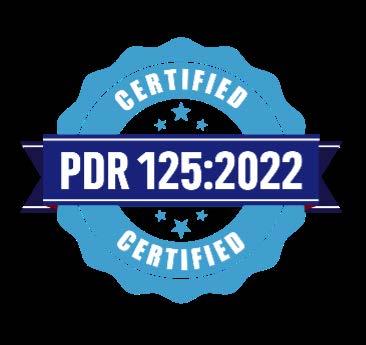
In 2024, Ecobat Resources Italy achieved the Gender Equality Certification (UNI/PDR 125:2022), recognizing our commitment to reducing the gender gap in areas such as career growth opportunities, equal pay, and employee welfare. This certification reinforces Ecobat’s position as a forward-thinking and attractive employer, further enhancing our reputation in the marketplace.

Employee-Focused
In 2024, Ecobat focused on enhancing employee experience, development, and enrichment in the following ways:
Successful Union Negotiations
• Achieved successful union contract negotiations for transportation in Middletown, New York, and operations in Indianapolis, Indiana, reinforcing strong labor relations and mutual commitments.
Leadership Development Programs
• Continued delivering key leader programs, including:
◦ Accelerate My Potential (AMP) leadership course
◦ Emerging Supervisor Program for supervisors and managers
◦ Ecobat 360 Coaching Program, supporting individual growth and leadership capability
Employee Financial Wellbeing
• Offered comprehensive retirement and financial planning workshops for U.S.-based employees, helping team members prepare for a secure financial future.
Compliance, Cybersecurity, and Legal Training
• Delivered targeted training on employment law, global cybersecurity, and compliance to reinforce legal responsibilities, ethical conduct, and digital resilience across the organization.
Health, Safety, and Environmental Awareness
• Provided interactive HSE regulatory training workshops, promoting awareness and compliance through engaging, topic-focused sessions.
• Provided US Plant Leaders comprehensive training via the twelvemodule Safety Excellence for Leaders Program

Health and Safety
In accordance with our Health, Safety, Environmental, and Sustainability (HSES) Policy, Ecobat is committed to providing a safe workplace that supports our employees’ health and well-being.
Ecobat strives to identify and manage process-specific risks and exposures to employees’ health and well-being, and to develop standards to ensure a uniform approach to managing identified health and safety risks.
Ecobat has developed and implemented the following Health and Safety program and process controls:
Health and Safety Emergency Action Plan
• Emergency Response, crisis communication, and Business Continuity have been identified in our Enterprise Risk Management (ERM) corporate focus areas. We have also established an internal auditing schedule for emergency action plan reviews.
• Written, site-specific Emergency Action Plans are in place and reviewed annually, and include emergency drills, review, and evaluation for effectiveness.
Actions to Control Hazardous Substance Exposure
• Training, Standard Work Instructions, internal and third-party audits, emergency response drills, as well as personal and ambient air quality monitoring.
• Engineering controls, including ventilation, compatible material design, tank spill control, and relevant procedures.
• Administrative Controls including communications that address hazards, and no-barrier access to Safety Data Sheets (SDS) for chemical handling and exposures.
• Task-specific Personal Protective Equipment, including training and written instructions to understand the proper use, maintenance, and limitations of protective equipment.
Respiratory Protection Program
• Management of the change review process.
• Development and implementation of our Blood Lead Standard that provides for fittings and testing of respiratory protective equipment.
• Chemical hazard assessment reviews.
Health and Safety Risk Training for Employees
• Implementation of health and safety risk training programs that provide traceable and recordable training on health and safety in the workplace, including contractors and visitors.
• Onboarding and annual refresher employee health and safety training.
• Monthly awareness and talk topics.
• Daily crew briefs.
• Sharing and learning from incidents.
Actions to Address Stress and Promote Psychological Well-Being
• Employee assistance resource programs and training.
• Employee Assistance Programs that include counseling and support services.
Employee Complaint Procedure for Reporting Occupational Incidents, Risks, and Concerns
• An EthicsPoint Speak-up hotline and anonymous reporting of incidents or concerns.
• Facility-based Safety Committees represented by both the workforce and employer representatives.
• Online HSE Management system, Intelex, for reporting of near misses and incidents that provides record for investigations, reporting, and tracking of corrective actions.
• Behavior-based safety observations by supervisors and management that are logged and tracked, with corrective action where required.
• Job risk assessments and work permits (where required) to ensure tasks are performed safely.
Repetitive Strain Injury Prevention
• Training in best ergonomic practices and engineering enhancements in the workplace to minimize ergonomic hazards.
• Proper tool selection and equipment design.
• Job rotation and fatigue management.
Equipment Safety Inspections or Audits
• Pre-use inspections.
• Monthly supervisors’ safety reports and inspections.
• Primary inspections include weekly, monthly, and quarterly inspections on emergency equipment and critical safety components. Routine maintenance planning and inspections are also performed.
• Additional inspections are performed by Supervisors and Management as required, in addition to inspection audits of safety equipment by our Safety and Compliance Departments.
• Periodic safety audits by third parties.
Employee Health and Safety Risk Assessment
• Routine Job Risk Assessment (JRAs).
• Non-routine JRAs.
• Behavioral-based safety observations.
• Annual PPE risk assessment review and signoff by departmental safety committee members and managers.
• Annual PPE risk assessment and signoff by employees.
• Annual hazardous assessment program review and signoff by employees.
• Stop Work Authority Program.
• Annual safety procedure reviews.
• Development of Global Safety Standards on all critical safety and health hazards.
• Routine inspections on mobile equipment and harnesses.
Noise Exposure Prevention
• Documented Hearing Conservation Program for all employees.
• Medical surveillance programs.
• Annual review of Noise Reduction Efforts as part of Engineering and Administrative Controls.
Health and Safety Training for Subcontractors Working on Premises
• Contractor and Visitor Safety Program.
• Assessment of potential impacts on neighboring communities and the public that may be affected by Ecobat’s operations.

Controlling Occupational Exposure Risks
Given the nature of our work, protecting our workforce from the recognized health impacts of lead exposure is critical to what we do. We focus on effective engineering controls, administrative, personal hygiene, and specialized personal protective equipment measures to manage our performance.
Ecobat has developed a Global Blood Lead Standard to ensure consistency in approach and expectations for all divisions concerning Blood Lead Sampling requirements, sampling populations, minimum Blood Lead Reduction program elements, and mentorship expectations.
Ecobat has established practices to ensure that employee Blood Lead Levels (BLL) stay within acceptable ranges. These practices include:
• Mandatory training and mentoring programs to educate and monitor employees’ actions, ensure compliance with best practices, and answer related questions.
• Periodic inspections, review, and mentoring by BLL improvement teams to ensure continuous improvement of existing protocols.
• Monitoring of blood levels for exposed employees through periodic testing. Where blood levels exceed established thresholds, additional testing and mentoring is implemented.
• Mandatory monthly testing is required for new employees to regulate and monitor transition into an exposed work environment.
BLL performance is communicated at all levels of the organization, including the Board of Directors, to ensure appropriate risk management and identify opportunities to advance the protection of our exposed populations in the workplace.

Working Conditions
We are committed to fostering a safe, collaborative, and equitable work environment, prioritizing the well-being of our employees while upholding high standards for fair labor practices and continuous improvement in working conditions.
• Health care coverage of employees in place
• Communication to all employees on remuneration process through publication of a salary grid
• Flexible organization of work, including remote and flexi-time opportunities
• Satisfaction surveys
• Two-way communication system to facilitate employee feedback regarding working conditions through EthicsPoint Speak-Up hotline and Safety Committees
• Compensation for extra or atypical hours
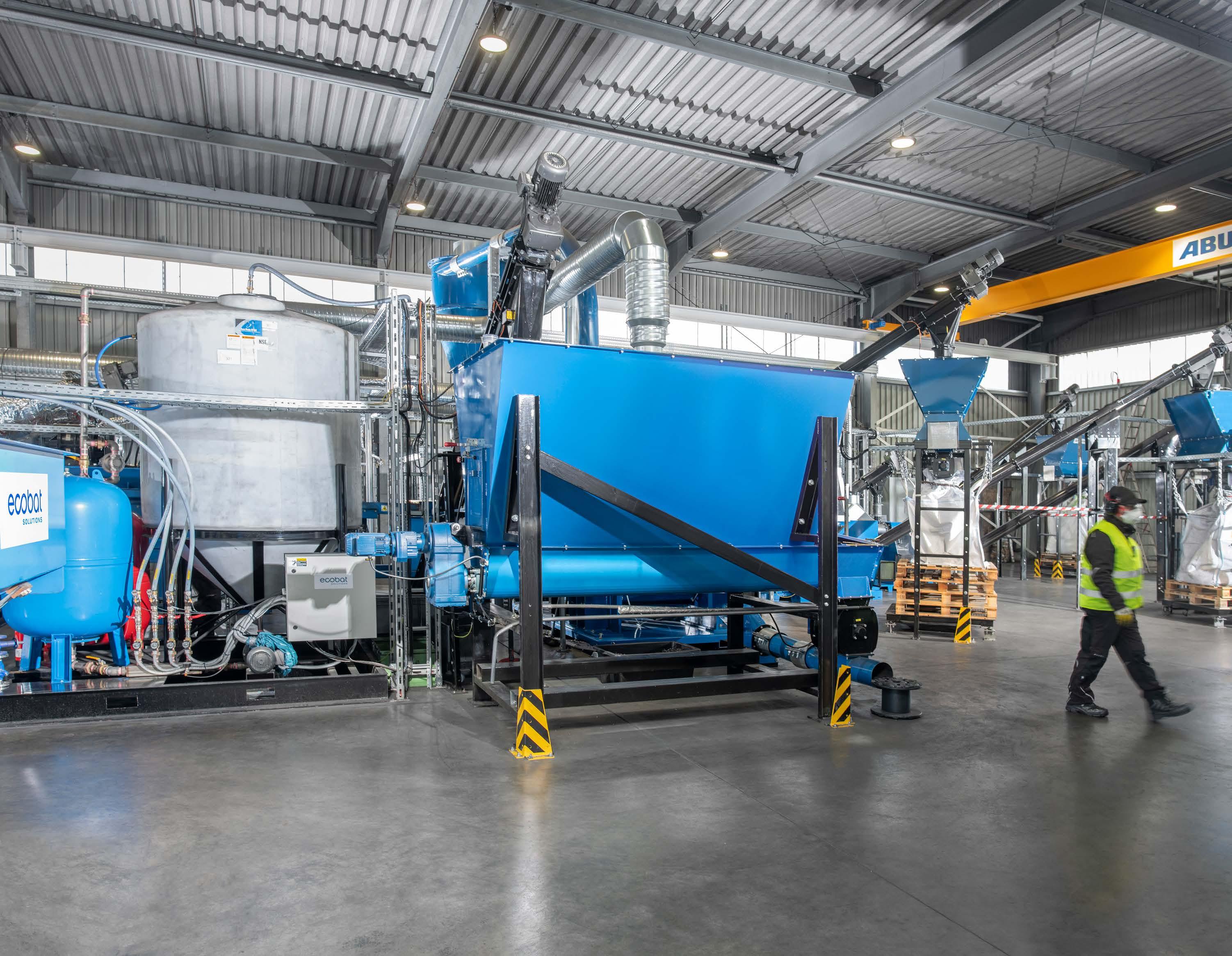
Social Dialogue
Ecobat supports social dialogue by engaging with our workforce via:
• Collective agreements
• Employee representatives
• European working councils
Social Dialogue KPIs
% of the total workforce across all locations who are covered by formal collective agreements concerning working conditions
a. Minimum number of days notice typically provided to employees and their representatives prior to the implementation of significant operational changes that could substantially affect them
b. For organizations with collective bargaining agreements, report whether the notice period and provisions for consultation and negotiation are specified in collective agreements
% of the total workforce across all locations who are covered by formally-elected employee representatives

Child Labor, Forced Labor, and Human Trafficking Measures
Ecobat is committed to addressing child labor, forced labor, and human trafficking issues within our operations and across our supply and value chains using the following approaches.
• Grievance mechanism on child labor, forced labor, and human trafficking
• Action to protect young workers
• Stakeholders consultation
• Monitoring of internal controls to ensure no child labor
• Impact assessment
• Awareness training
• Age verification of candidates
• Remediation procedure in place for identified victims
% of all operational sites that have been subject to human rights reviews or human rights impact assessments

Career Management and Training
Ecobat supports the career enhancement and training of our employees by implementing the following measures:
• Measures to promote career mobility
• Regular assessments of individual performance
• Setting of individual development and career plans
• Measures to anticipate or reduce layoffs
• Transparent recruitment processes
• Provision of skills development training
In addition to the above in 2024, Ecobat has invested in equipping our leaders with the skills to support, develop, and foster a culture of growth, safety, and collaboration within their teams. This investment has contributed to ensuring that Ecobat continues to provide a supportive workplace where employees feel valued, engaged, and empowered, which drives both individual and organizational success.
From an HSE perspective, Ecobat introduced an internal newsletter to keep employees abreast of the latest changes in legislation and regulatory obligations, and to highlight potential impact on the business. Each newsletter is followed up by a global workshop to provide further awareness, information, and engagement with employees.
Community
At Ecobat, we believe strong communities are the foundation of long-term sustainability. We are committed to creating lasting, positive impact where we live and work by investing in employee engagement, job creation, economic development, and meaningful outreach initiatives.
We also recognize that our operations can influence the surrounding environment and people. That’s why Ecobat prioritizes transparency and open dialogue with community stakeholders. Through dedicated Community Relations resources, we proactively listen, respond, and engage with local stakeholders, ensuring our actions align with our external engagement principles.
OUR STAKEHOLDER ENGAGEMENT STRATEGY IS GROUNDED IN FIVE KEY PILLARS OF QUALITATIVE ANALYSIS:





These pillars guide tailored engagement strategies across our facilities and regions, helping us remain accountable and responsive to those we serve.
In 2024, Ecobat continued to support a variety of community-based programs and initiatives, including partnerships with Boys and Girls Clubs, youth sports and academic sponsorships, Science, Technology, Engineering, Arts, and Mathematics (STEAM) education initiatives, community health fairs, and donation drives. These efforts not only strengthen the social fabric of our communities but also foster long-term relationships with local organizations.
We understand that communities are vital partners in our sustainability journey. Ecobat is committed to operating responsibly, evaluating our impact, and ensuring we protect and uplift the people and environments around us.



Environment
Environmental stewardship is the core of Ecobat’s business. Our operations are centered around sustainable processes and practices for the safe, effective handling of lead, while implementing best practices and leading standards to protect the environment.
We believe improved operational efficiency and resource management can sustain significant economic growth while reducing environmental impacts. We aim to reduce our footprint by implementing technologies which improve our operational efficiency, including minimizing emissions to air, lowering
energy consumption and greenhouse gases, lowering the use of water and generation of effluent in our operations, and reducing waste from our processes. We support our environmental management practices through International Organization for Standardization (ISO) 14001 certification. In addition, several of our facilities are also certified for energy management under ISO 50001.
Operations Spotlight
Ecobat employs Wet Electrostatic Precipitator (WESP) technology as a key component of its environmental protection strategy in its North American facilities: City of Industry, California; Indianapolis, Indiana; and Middleton, New York. The WESP system is designed to significantly reduce hazardous air pollutants emitted during the lead recycling process. Installed in 2008, this technology targets the removal of fine particulate matter, including lead and arsenic, by charging aerosol particles in an electric field and collecting them on oppositely charged plates. The WESP effectively captures and removes these contaminants from the exhaust stream. This process has led to a dramatic decrease in emissions. Our investment in WESP technology across our North American facilities underscores our commitment to environmental stewardship and community health, setting a precedent in the battery recycling industry for adopting advanced pollution control measures.

Energy and Greenhouse Gas Emissions
Ecobat has implemented approaches which reduce our energy consumption and improve our greenhouse gas emissions. Our approaches include:
• Improvement of energy efficiency through technology or equipment upgrades
• Use of waste heat recovery system or combined heat and power units
• Purchase or generation of renewable energy
• Training employees on energy conservation and climate
• Fuel switch to achieve higher energy efficiency and/or lower carbon emission intensity
• Energy or carbon audit
To enhance the accuracy of our 2024 Scope 2 emissions reporting, Ecobat is utilizing supplier-specific emission factors. This approach allows us to account for variations in emission intensity between the utility providers selected by Ecobat and the regional grid average, thereby ensuring more precise greenhouse gas (GHG) emissions data.
In 2024, Ecobat developed a Scope 3 greenhouse gas calculation methodology. The methodology includes upstream and downstream value chain emissions in 11 of 15 applicable categories, including purchased goods and services, transportation and distribution, and end-of-life treatment of products. The calculation methodology has undergone a pre-assurance process by an external assurance provider. Where required, this methodology will be used to calculate Ecobat Scope 3 emissions from 2025 onwards.
1 The 2022 and 2023 location-based Scope 2 emissions have been recalculated using supplier-specific emission factors, in line with the updated methodology for greenhouse gas emissions calculation.
2 The 2023 energy efficiency figure has been revised due to a correction in the production volume previously used.
3 The 2022 and 2023 energy consumption figures have been updated to reflect the disinvestment of two sites and the correction of one site that was previously misclassified as under Ecobat’s operational control.
^This metric was assured by ERM CVS in 2025. Reference Independent Limited Assurance Statement to Ecobat, LLC for details.
Air Pollution Prevention Measures
Ecobat considers the following measures in air pollution reduction efforts.
• Technology-based work process improvements which mitigate emissions of VOC, SO 2, NO x , and/or heavy metals and emissions of dust and particulate matter.
• Actions to prevent emission of atmospheric pollutants and other environmental nuisances (noise, odor, vibration, road, light).
• Implementing work processes to mitigate odor and noise pollution.
• Periodical analysis of major air pollutants quantities and ambient air quality monitoring for facilities not required by regulation.
Operations Spotlight
The installation of new control units at the Freiberg, Germany, site represents a critical step toward meeting enhanced environmental standards outlined in the 17. BImSchV and Best Available Techniques Reference Document (BREF) guidelines. Implemented in 2024, the project introduces advanced monitoring and control capabilities for key emission parameters including NOx , oxygen, and post-combustion chamber temperature. By integrating a central Programmable Logic Controller (PLC) to manage measurements at multiple nozzle heights and incorporating a new NH3 analyzer, the system will significantly optimize the use of ammonium water, reducing NOx emissions and ensuring more precise environmental control. These upgrades are essential for achieving compliance with updated regulatory thresholds, safeguarding operational continuity of the incinerator, and minimizing the risk of fines or shutdowns. In aligning with stricter emissions standards, this project reinforces the site’s commitment to reducing atmospheric pollutants and promoting sustainable, regulation-compliant operations. Official monitoring measurements confirmed the proper functioning of the NOx control and proved that the improvements to the Selective Non-Catalytic Reduction (SNCR) system were successful. The incinerator and flue gas treatment system operate at peak efficiency, setting the standard for best-in-class performance.

Hazardous Materials
At Ecobat, we work with hazardous materials as part of our operations, and we are committed to ensuring both safety and efficiency. Ecobat strives to protect our employees and the environment from the impact of hazardous materials. Our HSE program makes specific provision for the protection of employees against hazardous materials in the workplace, including:
• Information and training of all employees on safely handling and managing hazardous substances.
• Procedures for using, labeling, storing, handling, and transporting hazardous substances
• Reduction of material consumption through process optimization and use of recovered input materials
• Procedures for the reporting and management of accidental hazardous substance spills
• Implementation of personal sampling and ambient air quality monitoring programs
• Medical surveillance and blood lead reduction programs and incentives.
We believe that accurate and timely reporting of incidents that may impact the environment or neighboring communities is critical to improving environmental performance. Incident data provides valuable insights for identifying trends, investigating root and/or underlying causes, and raising awareness to prevent future recurrence of similar types of incidents. Ecobat implements a web-based management system that includes incident management tools used to report and track incident data. Incidents are ranked by severity and likelihood, using the Ecobat Risk Matrix as either low, medium, or high. Incidents are investigated, and corrective actions are logged and tracked as part of each operation’s environmental program.
Where required, Ecobat complies with the Seveso III Directive 2012/18/ EU, which establishes rules for preventing major industrial accidents involving hazardous substances and mitigating their impact on human health and the environment. Facilities engaged in industrial processes involving such substances are subject to reporting obligations to the relevant national authorities. Where required, Ecobat prepares Hazardous Chemical Inventories to identify substances that pose significant risks to health and the environment, supporting responsible management of their use, production, and distribution.
Ecobat’s US facilities, operating in some of the most stringent regulatory environments, including California and New York, implement programs that not only comply with federal and state requirements but are considered best practices for the protection of worker safety and the environment. Ecobat facilities perform hazard assessments on the selection of new chemicals and risk assessments for the safe use and management of hazardous chemicals in the workplace. Ecobat’s US facilities have rigorous reporting requirements that include the Emergency Planning and Community Rightto-Know Act (EPCRA), Emergency and Hazardous Chemical Inventory (aka Tier II), Toxic Release Inventory (TRI), Toxic Substances Control Act (TSCA), hazardous waste generation and reduction reporting, air emissions, wastewater discharges, and stormwater. Implementation of spill control and countermeasures, state-of-the-art secondary containment, negative pressure enclosures, and state-of-the-art air pollution control technology are employed to further our sustainable efforts. Ecobat’s US operations have set the standard of best-in-class.
Operations Spotlight
Increasing lithium processing capabilities. In 2024, Ecobat commissioned three lithium-ion battery (LIB) recycling facilities located in Hettstedt, Germany; Casa Grande, Arizona; and Darlaston, England. Together they are capable of processing up to 10,000 tons of LIBs per year, with a possibility of scaling up capacity to 25,000 tons.
The facilities focus on producing black mass material from recycled LIBs, which is rich in valuable elements like lithium, cobalt, nickel, manganese, and graphite. This black mass is crucial for closedloop battery production, reducing the need for new mining and supporting sustainable battery supply chains. Each facility serves different markets:
• Hettstedt: Processes various battery chemistries and serves major automotive OEMs and collection programs across Europe.
• Casa Grande: Works with automotive OEMs, battery manufacturers, and electronic scrap recyclers to serve North American and global markets.
• Darlaston: Acts as a critical hub for the UK and wider European market, providing diagnostic services and supporting sustainable material flows.
Ecobat’s expansion aims to meet the growing demand for sustainable battery recycling solutions, driven by the rise in EV sales and endof-life batteries.

Water Management
Ecobat strives to conserve and protect our water resources through the following protocols:
• Technologies to recycle or reuse water
• Wastewater quality assessment
• Water accounting or audit
• Adoption of a cooling system with reduced or recycled water consumption
• Reduction of water consumption through technology or equipment
• Control of wastewater generated in finishing operations such as quenching or demurring
• Reduction of water consumption in cleaning, degreasing, and rinsing
1 The previously reported figure for 2023 has been restated due to a unit conversion error. The original value was incorrectly converted, and has now been corrected to ensure consistency and accuracy in reporting.
The Reverse Osmosis (RO) Upgrade Phase 2 project in our Darley Dale, Derbyshire, UK, facility was commissioned in 2024. It delivers significant environmental benefits by enhancing the capacity of the effluent treatment plant to process up to 120m³ per day. This upgrade ensures that 100% of water discharged from the site is treated through the reverse osmosis (RO) system, thereby substantially reducing the risk of exceeding metal discharge limits, particularly during storm events when untreated effluent historically posed a compliance challenge. The improved system mitigates the risk of environmental permit breaches, aligns with current regulatory standards, and supports sustainable water management through increased recycling back into plant operations. Overall, the project strengthens the site’s environmental resilience, reduces potential exposure, and reinforces the company’s commitment to responsible environmental stewardship.

Waste Management
Ecobat employs procedures to reduce and limit the waste we produce through the following efforts:
• Internally sorting and disposing of waste according to waste streams
• Providing training to raise employee awareness of waste reduction and sorting
• Reducing internal waste through material reuse, recovery, or repurposing
• Mapping of waste streams
• Secondary processing of waste into value-added products
• Creating synergies between plants to increase material reuse and reduce waste
In 2024, Ecobat further refined its waste data collection process by further defining its waste streams and recovery operations in order to create better alignment of its US and European facilities. This change allows for more accurate data collection that will be used for proper comparative analysis in the future.
Operations Spotlight
Ecobat continually seeks innovative ways to close the battery recycling loop. In one of its new developments, Ecobat has obtained UL 94 certification for its recycled polypropylene (PP) compound, Seculene, meeting the highest V-0 standard. This certification, known as the Yellow Card, allows Ecobat to market Seculene as a flameretardant material for the electrical and automotive industries.
Seculene incorporates Budit 667, a halogen-free, intumescent flame retardant, which forms a protective foamed layer during fires, preventing the spread of flames and toxic gases. This compound is used in e-bike batteries and has garnered attention in the automotive sector.

Responsible Material Sourcing
Ecobat practices sustainable procurement through the following methods:
• Ecobat uses Exiger for onboarding third parties. Exiger is a platform that helps us monitor our third parties for international sanctions, political affiliations, and adverse media to understand any reputational implications when deciding Ecobat’s current and future business partners. Ecobat does not conduct business with any sanctioned persons, organizations, entities, or countries.
• Supplier CSR code of conduct.
• Supplier assessment on environmental and social practices.
◦ High-risk suppliers are issued a designated questionnaire to allow Ecobat employees to evaluate their business practices, to ensure those practices align with Ecobat’s values. Within this questionnaire, suppliers will find questions that fall within the following categories:
– Company ownership
– Responsible sourcing and audit history
– Health and safety management
– Environmental management
– Labor and respect for human rights
– Fair and ethical business conduct
• CSR risk analysis.
• Integration of social and environmental clauses within contracts.
• Voice of the Worker surveys or other supplier monitoring practices.
% of all on-boarded suppliers which have gone through a CSR assessment/audit

Performance Metrics
We continue to review the following KPIs with the aim of tracking performance year-on-year. For some of the following metrics, we are in the process of establishing targets which the business should strive to meet. Such targets are subject to change, and no assurance can be given that such targets will be met.
Governance
Health & Safety
Due to General Data Protection Regulations (GDPR) privacy and security regulations, EU-based results related to these sections are not disclosed.
People & Community
% of the total workforce across all locations who
covered by formal collective agreements concerning working conditions
a. Minimum number of days notice typically provided to employees and their representatives prior to the implementation of significant operational changes that could substantially affect them
b. For organizations with collective bargaining agreements, report whether the notice period and provisions for consultation and negotiation are specified in collective agreements
of the total workforce across all locations who received training on environmental issues
% of all operational sites for which an environmental internal audit & control has been conducted
% of all operational sites for which an environmental risk assessment has been conducted
1 The previously reported figure for 2023 has been restated due to a unit conversion error. The original value was incorrectly converted, and has now been corrected to ensure consistency and accuracy in reporting.
2 Indirect Emissions [Market-based]
1 The 2022 and 2023 location-based Scope 2 emissions have been recalculated using supplier-specific emission factors, in line with the updated methodology for greenhouse gas emissions calculation.
2 The 2023 energy efficiency figure has been revised due to a correction in the production volume previously used.
3 The 2022 and 2023 energy consumption figures have been updated to reflect the disvestment of two sites and the correction of one site that was previously misclassified as under Ecobat’s operational control.
^This metric was assured by ERM CVS in 2025. Reference Independent Limited Assurance Statement to Ecobat, LLC for details.
Environment
% of all buyers across all locations who received training on sustainable procurement
% of onboarded suppliers which have gone through a CSR assessment/audit
% of suppliers with recognized high-quality products/services
% locally based
% of onboarded suppliers in compliance with health and safety regulations
% of suppliers which present high level of reliability
not currently tracked not currently tracked not currently tracked

Section 53 Report Alignment with GRI
Report Alignment with SASB 55 Report Alignment with UNGC SDG 56 ERM-CVS Third-Party Assurance Report 58 General Disclaimer
United Nations Sustainable Development Goals
See within our report the sections: Governance, Our People, and Environment #3 Good Health and Well-Being



#9 Industry, Innovation and Infrastructure




Our commitment to the well-being of our team members, partners, communities, and the planet guides us in our business practices, and we strive to look for new ways to enhance our efforts by embracing quality education, safe working conditions, and good health and wellbeing.
We are proud to say that we supply key resources necessary to our global energy supply, and that we help develop and produce the next generation of low-emission and climate-transition technologies. Managing the production and recycling of lead responsibly is essential to making this possible. At Ecobat, our operations are centered around sustainable processes and practices for the safe, effective handling of lead in accordance with industry standards. Recycling and resource recovery comprise more than 80% of our business.
Our closed-loop recycling approach helps us maintain the supply of lead, while reducing the overall environmental footprint of lead. #13
United Nations Global Compact

Principle 1 We support and respect the protection of internationally proclaimed human rights and legislation as shown within our management system.
Principle 2 We make sure that we are not complicit in human rights abuses by applying our policies and procedures.
Principle 3 We uphold the freedom of association and the effective recognition of the right to collective bargaining.
Principle 4 We are committed to the elimination of all forms of forced and compulsory labor and apply legislation where we operate.
Principle 5 We are committed to the effective abolition of child labor; and
Principle 6 the elimination of discrimination in respect to employment and occupation.
Principle 7 We support a precautionary approach to environmental challenges.
Principle 8 We explore and, where reasonable, take initiatives to promote greater environmental responsibility.
Principle 9 We encourage the development and application of environmentally friendly technologies.
Principle 10 We work against corruption in all its forms, including extortion and bribery.

Independent Limited Assurance Report
ERM Certification & Verification Services Incorporated (“ERM CVS”) was engaged by Ecobat , LLC (“Ecobat”) to provide limited assurance in relation to the Selected Information set out below and presented in the Ecobat 2024 Sustainability Report (the “Report”).
ENGAGEMENT SUMMARY
Scope of our assurance engagement
Selected Information
Limited assurance on whether the following Selected Information is fairly presented in Ecobat’s 2024 Sustainability Report (t he “Report”) in accordance with the Reporting Criteria.
• Scope 1 GHG Emissions [MT CO 2 e]
• Scope 2 GHG Emissions (location - based) [MT CO 2 e]
• S cope 2 GHG Emissions (market - based) [MT CO 2 e]
Reporting period
Reporting criteria
1 January 2024 – 31 December 2024
• Ecobat’s reporting criteria as explained via footnotes in the Report
• The GHG Protocol Corporate Accounting and Reporting Standard (WBCSD/WRI Revised Edition 2015) for Scope 1 and Scope 2 GHG emissions
• GHG Protocol Scope 2 Guidance (An amendment to the GHG Protocol Corporate Standard (WRI 2015) for Scope 2 GHG emissions
Assurance standard and level of assurance
We performed a limited assurance engagement, in accordance with the International Standard on Assurance Engagements ISAE 3000 (Revised) ‘Assurance Engagements other than Audits or Reviews of Historical Financial Information’ issued by the International Aud iting and Assurance Standards Board.
The procedures performed in a limited assurance engagement vary in nature and timing from and are less in extent than for a reasonable assurance engagement and consequently, the level of assurance obtained in a limited assurance engagement is substantially lower than the assurance that would have been obtained had a reasonable assurance engagement been performed.
Respective responsibilities
Ecobat is responsible for preparing the Report and for the collection and presentation of the information wit hin it, and for the designing, implementing and maintaining of internal controls relevant to the preparation and presentation of the Report.
ERM CVS’ responsibility is to provide a conclusion to Ecobat on the agreed assurance scope based on our engagement terms with Ecobat, the assurance activities performed and exercising our professional judgement.
OUR CONCLUSION
Based on our activities, as described below, nothing has come to our attention to indicate that the Selected Information for 2024 is not fairly presented in the Report, in all material respects, in accordance with the reporting criteria.
OUR ASSURANCE ACTIVITIES
Considering the level of assurance and our assessment of the risk of material misstatement of the Report a multi -disciplinary team of sustainability and assurance specialists performed a range of procedures that included, but was not restricted to, the fol lowing:
• Evaluating the appropriateness of the reporting criteria for the Selected Information;
• Interviewing management representatives responsible for managing the Selected Information;
• Interviewing relevant staff to understand and evaluate the management systems and processes (including internal review and co ntrol processes) used for collecting and reporting the Selected Information;
• Reviewing of a sample of qualitative and quantitative evidence supporting the Selected Information at a corporate level;
• Performing an analytical review of the year-end data submitted by all locations included in the consolidated 2024 group data for the Selected Information which included testing the completeness and mathematical accuracy of conversions and calculations, and consolidation in line with the stated reporting boundary;
• Conducting one in-person visit and one virtual visit to Ecobat production site s in California, US and France, respectively, to review source data and local reporting systems and controls;
• Evaluating the conversion and emission factors and assumptions used; and
• Reviewing the presentation of information relevant to the assurance scope in the Report to ensure consistency with our findin gs.
THE LIMITATIONS OF OUR ENGAGEMENT
The reliability of the Selected Information is subject to inherent uncertainties, given the available methods for determining, calculating or estimating the underlying information. It is important to understand our assurance conclusions in this context
OUR INDEPENDENCE, INTEGRITY AND QUALITY CONTROL
ERM CVS is an independent certification and verification body accredited by UKAS to ISO 17021:2015. Accordingly, we maintain a comprehensive system of quality control, including documented policies and procedures regarding compliance with ethical requireme nts, professional standards, and applicable legal and regulatory requirements. Our quality management system is at least as demanding as the relevant sections of ISQM -1 and ISQM-2 (2022).
ERM CVS applies a Code of Conduct and related policies to ensure that its employees maintain integrity, objectivity, professi onal competence and high ethical standards in their work. Our processes are designed and implemented to ensure that the work we und ertake is objective, impartial and free from bias and conflict of interest. Our certified management system covers independence and ethical requirements that are at least as demanding as the relevant secti ons of the IESBA Code relating to assurance engagements.
ERM CVS has extensive experience in conducting assurance on environmental, social, ethical and health and safety information, systems and processes, and provides no consultancy related services to Ecobat in any respect.

July 10, 2025
Malvern, PA
ERM Certification & Verification Services Incorporated www.ermcvs.com | post@ermcvs.com
General Disclaimer
Purpose of This Report
This report describes Ecobat’s current efforts and goals related to environmental, social, and governance (ESG) matters, with a primary focus on our environmental initiatives. Our aim is to share how we consider sustainability and related risks as part of our business decisions, and how these efforts may help create long-term value for our company and its stakeholders.
No Guarantees
While we are committed to making progress on our environmental goals, at this time, we cannot guarantee that all of our plans or targets will be achieved, or, that given evolving global conditions, that our actions will always have a positive impact. Our approach to ESG is a crucial part of how we run our business, but at times, other factors may also be considered.
Evolving Standards and Regulations
The way companies measure and report on ESG topics is changing quickly, and there are many different standards, expectations, and legal obligations. As a private company, we are not subject to the same rules as public companies, but transparency and responsibility are core values. We may update our practices as new regulations or best practices develop, but given changing political tides, we cannot promise that our current approach will always meet future requirements. Regardless, we will continue to track evolving standards and regulations in order to determine what legal baselines we will comply with versus what aspirational standards to which we will aspire. Potential adverse reactions by investors and other stakeholders to the application of ESG factors to decision-making processes, could result in tensions, conflicts of interest or other potential issues as companies navigate how to balance competing interests with respect to ESG considerations.
Environmental Risks and Limitations
We work hard to manage the environmental impacts of our operations, but some risks—like equipment failures, accidents, or natural disasters—are beyond our control. We cannot eliminate all environmental risks, and some impacts may still occur despite our best efforts. When one does occur, we will strive to be prepared and responsive.
No Assurance of Third-Party Information
Sometimes we rely on information or reports from outside experts or consultants. While we contractually require our sources to be reliable, we cannot provide guarantees regarding third-party information beyond our control.
No Investment Advice or Endorsement
This report is for informational purposes only. It is not intended to offer investment advice or to serve as a guarantee of future performance. As a private company, our main audience is our employees, business partners, and other stakeholders—not public investors.
Changing Goals and Initiatives
Our goals, targets, and initiatives may change over time as we learn, grow, and respond to new challenges. Descriptions of achievements or improvements in this report do not necessarily mean that Ecobat was the only contributor to those outcomes.
Oversight of ESG-Related Decision Making by Governance Bodies
While the Board has four committees to provide structured oversight and governance, including the Audit Committee, Capital Expenditures Committee, Health, Safety, Environmental and Sustainability Committee, and the Governance and Compensation Committee, these committees do not necessarily have full or partial oversight in respect of all or any ESGrelated decisions.
Summary
Our ESG and sustainability efforts are important to us, and they are part of our overall business. We will continue to review and improve our approach as needed, but we cannot guarantee specific results or outcomes.
